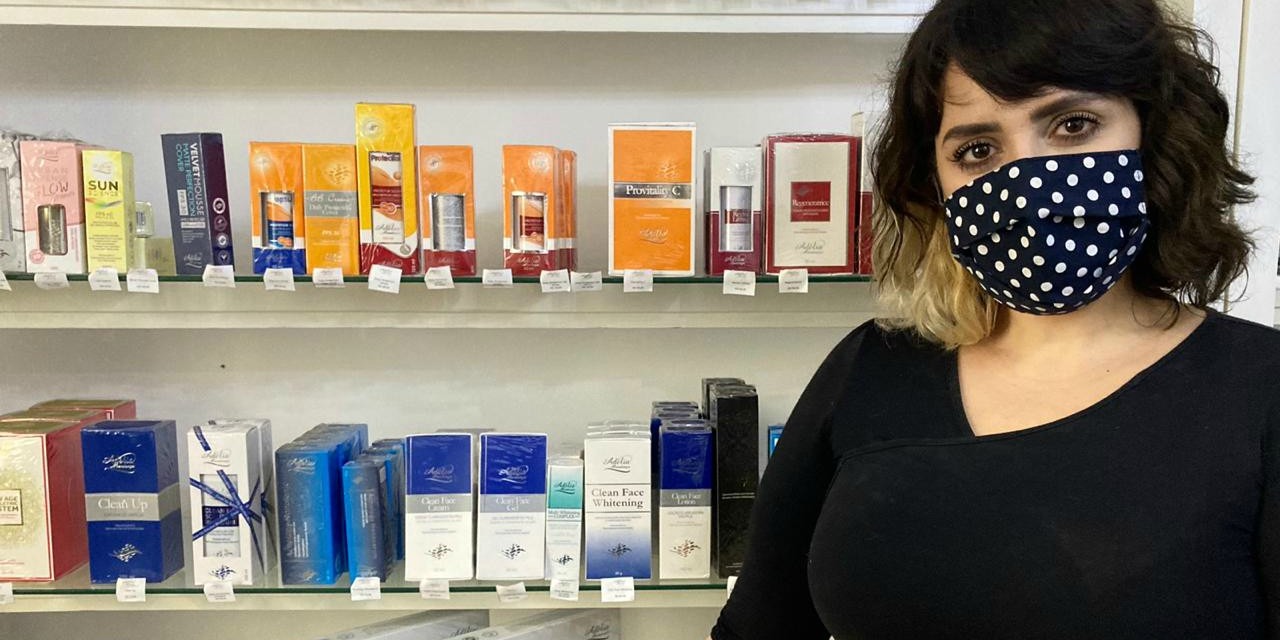
‘Halal certification sign of respect for culture we want to be part of’: Brazilian cosmiatry firm to start exporting to Saudi, UAE
SÃO PAOLO - Following almost a year of consultations, Adélia Mendonça Cosméticos (AMC) was halal-certified by CDIAL HALAL on September 28. The Brazilian cosmiatry firm specializing in skin care will soon start exporting to the United Arab Emirates, Saudi Arabia and Morocco.
“But, if it works out, we are already thinking of Tunisia, too,” said Jacqueline Mendonça.
Daughter of “founding mother” Adélia, the 34-year-old is the family firm’s Chief Operating Officer. She also runs the São Paolo AMC agency that sits hidden away at the hip end of Oscar Freire Avenue, the megapolis’ most exclusive shopping street.
Her sister Joielle is responsible for research and development at the company headquarters in Oswaldo de Araújo, a small town near Belo Horizonte, some 600 kilometers farther inland from São Paolo.
“The consultation process took very long, as we use over 400 active ingredients in some 150 products, all of which needed testing,” said Jacqueline. “And, of course, COVID did not help.”
With over 5 million cases and 150,000 deaths by late October, Brazil has been hit hard by the global pandemic. Most Brazilian cities, including São Paolo, introduced social distancing measures in an attempt to stop the disease from spreading.
COVID, however, did not stop AMC from launching several new products earlier this year. While physical sales so far witnessed a decline, the company was still able to reach the farthest corners of the country through its well-established e-commerce platform.
“We see ourselves not as a cosmetics but as a cosmiatry company, as our aim is not solely to beautify, but to actively treat the skin,” said the young Mendonça showing several products. “Our creams contain ingredients to, for example, actively treat brown spots or acne.
“One of the new products we launched earlier this year is specifically geared towards dark skin, which has a totally different pigmentation than typical western or European skin,” she added. “So, we developed a cream with several kinds of vitamin C, anti-oxidants and hydrants.”
Brazil is well-known for its beauty and cosmetics market. Sales were worth $30 billion in 2018 and the Brazilian market was the world’s fourth biggest after the U.S., China and Japan, according to data from the Brazilian Association of Personal Hygiene, Perfume and Cosmetics Industry.
The country is the world’s number one consumer of deodorant, fragrances and sun protection and ranks second in the consumption of men’s hygiene, hair, bath and depilatory products.
“Brazil is a mix of people from all over the world,” said Jacqueline. “It offers a variety and richness which is reflected in the country’s skin. Seeing the fact that there are so many different skin types, why would everyone use the same product?”
Brazil still enjoys a positive image in most of the world. It is associated with beach, sun, samba and football. Due to the country’s natural abundance, it is also known for its health and beauty care. “And we have a hot sunny climate, very similar to much of the Arab world,” said Jacqueline.
AMC’s journey started some 40 years ago when her mother Adélia was still an adolescent. She suffered from a congenital cutaneous dysfunction, acne, which left her with very low self-esteem.
“It is the age that every young woman wants to look beautiful, to go out, start dating, but with my skin condition I felt inhibited from all that,” said Adélia by phone. “It made me very sad. However, today I believe God gave me that skin for me to seek knowledge and treatments to help other people with the same problem. I´m very sure about that.”
Following her sociology studies, she completed a course in aesthetics and cosmetology, and opened her first clinic. She soon realized that Brazil did not yet have the required products. She traveled to France to obtain better materials and follow a series of industry internships.
She hasn’t stopped traveling since. One of her favorite destinations is the Arab world, where she visits almost every year to absorb the culture and visit spas and beauty clinics to exchange ideas about aesthetics and cosmetics.
“I always say that in my past lives I must have lived there,” she laughs. “It is something I cannot explain. It is really different from other places I’ve visited, but whenever I am there, I just feel very at ease.”
It is at one of those journeys some four years ago that she got the idea to obtain halal certification from CDIAL HALAL Established in 1984, CDIAL HALAL is a branch of the Center for the Divulgation of Islam in Latin America (CDIAL) dedicated to halal certification.
Alongside FAMBRAS it is Brazil’s biggest certifying agency. Employing over 500 people, CDIAL has certified products and over 95 factories in Brazil alone.
“To us, halal certification is essentially a sign of respect for the culture we want to be a part of,” said Jacqueline. “When you visit a country you also try to respect local traditions.”
(Reporting by Peter Speetjens; Editing by Emmy Abdul Alim emmy.abdulalim@salaamgateway.com)
© SalaamGateway.com 2020 All Rights Reserved
